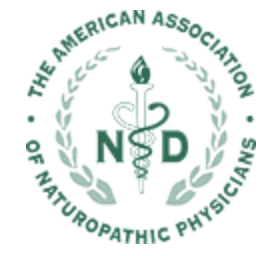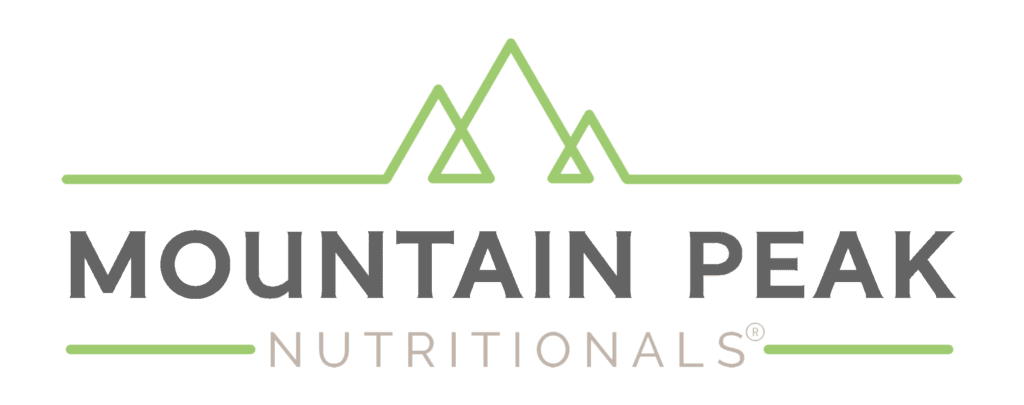https://naturopathic.org/page/AboutNaturopathicMedicine
Naturopathic medicine blends centuries-old natural, nontoxic therapies with advances in the science of health and human systems, covering all aspects of family health from prenatal to geriatric care.
Naturopathic doctors (NDs) are the only primary care physicians trained in both natural and conventional approaches to prevent disease, treat acute illness, and manage or reverse chronic health conditions. It is effective in treating most health problems, both acute and chronic.
Naturopathic medicine concentrates on whole-patient wellness, centers around the patient, and emphasizes prevention and self-care. Naturopathic physicians are guided by principles that are based on the premise that healing is intrinsic to the nature of all living organisms. Those principles include:
- The Power of Nature – Support the body’s innate ability to heal and remove obstacles to healing and recovery to support this inherent self-healing ability.
- Identify and Treat the Cause – Seek to identify and remove the cause of illness rather than merely eliminate or suppress the symptoms.
- First Do No Harm – NDs follow three precepts to avoid harming the patient. (1) Utilize methods and medicines which minimize the risk of harmful side effects; (2) Avoid when possible the harmful suppression of symptoms; and (3) acknowledge, respect, and work with the individuals self-healing process.
- Doctor as Teacher – NDs spend significant time educating their patients and encourage self-responsibility for health and healthcare choices.
- Treat the Whole Person – Popularized now as “patient-centered healthcare,” NDs have always treated patients by taking many factors that contribute to illness/wellness, including mental, physical, emotional, spiritual, and environmental (conventionally referred to as the “social determinants of health.”)
- Practice Prevention – NDs emphasize prevention of disease by addressing lifestyle, assessing risk factors, heredity and susceptibility to disease, and by making appropriate interventions in partnership with their patients to prevent illness.
What Is The Scope of Practice of Oregon Naturopathic Physicians?
Oregon naturopathic doctors have one of the broadest scopes of practice in the country, and are defined as primary care physicians in Oregon statute. Naturopathic doctors are licensed to diagnose and treat disease, can perform or order diagnostic exams and tests, and can prescribe all pharmaceuticals needed in a primary care practice as well as the natural therapeutics that offer patients even more options to address their healthcare needs.
Naturopathic treatments include:
Clinical Nutrition
A cornerstone of naturopathic medicine, clinical nutrition refers to the practice of using food to maintain health, the therapeutic use of food to treat illness, and the utilization of targeted vitamin and nutrient therapy as part of the treatment plan.
Botanical (Herbal) Medicine
Many plant substances are powerful medicines, effective and safe when used properly, in the right dose and in proper combinations with other herbs or pharmaceuticals. Many pharmaceutical drugs found their origin in herbal medicine before they were patented or altered by drug manufacturers.
Physical Medicine
Includes naturopathic manipulation of the muscles, bones and spine as well as application of hot and cold, gentle electrical impulses, therapeutic ultrasound, hydrotherapy and exercise therapy.
Counseling and Stress Management
Mental attitudes and emotional states can be critical elements in healing illness. NDs are trained in counseling, biofeedback, life-style, and other mind-body techniques.
Diagnostic Labs & Imaging
Naturopathic physicians use conventional diagnostic tools when indicated, such as x-rays, electrocardiograms, ultrasound, CT, MRIs, as well as blood, urine and other laboratory tests.
Homeopathy
This system of medicine is based on the “law of similars” (like cures like) and uses highly diluted natural substances to stimulate the body’s innate ability to heal.
Natural Childbirth
Some naturopathic physicians have a specialty in midwifery and offer prenatal and postnatal care using the most modern diagnostic techniques. Whenever natural childbirth is not medically appropriate, patients are referred for appropriate care.
Minor Surgery
Includes the repair of superficial wounds and removal of foreign bodies, cysts and other superficial masses, with local anesthesia as needed.
Pharmaceutical Medicines
Oregon NDs can prescribe any pharmaceutical needed for primary care. Naturopathic physicians are the only licensed health care providers with advanced training in drug-drug, drug-herb, and drug-nutrient interactions and/or complications.
Chinese Medicine
Many naturopathic physicians also have a specialty in Chinese medicine, and may use pulse diagnosis, acupuncture, acupressure and Chinese botanical medicine.
History of Naturopathic Medicine
As a distinct health care professional, Naturopathic Medicine is over 125 years old. The term “Naturopathy” was first coined in 1885 by Dr. John Scheel, a German homeopath practicing the methods of Kneipp and Kuhn at his Badekur Sanitarium in New York. Benedict Lust purchased the name in 1901 to describe the eclectic practice of “nature doctors”. At the time, Naturopathy embraced all known means of natural therapeutics, including diet, herbs, hydrotherapy, homeopathy, exercise, and manipulative therapies, as well as psychological and spiritual counseling.
Naturopathic medicine developed at a time when there was tremendous change and advancement in North America with respect to health care. Homeopathy had been brought to America in 1833 by Dr. Constantine Hering, Osteopathy was established by Andrew Taylor Still in 1874, and Chiropractic medicine was established in 1895 by Daniel David Palmer. Many of the early naturopaths held multiple designations and there was an acceptance and appreciation for the different forms of healing
The first school of naturopathy was founded in New York City by Dr. Benjamin Lust, and graduated its first class in 1902.
The Oregon Association of Naturopathic Physicians was founded in 1909, and is the oldest association representing naturopathic doctors in North America.
By the 1920’s, naturopathic medical conventions attracted more than 10,000 practitioners and there were over twenty naturopathic medical schools. At the time, Naturopathic Physicians were licensed in most states, including Oregon, which formally licensed naturopathic doctors in 1927.
Naturopathic medicine experienced a decline in the 1940s and ’50s with the rise of pharmaceutical drugs, technological medicine, and the idea that drugs could eliminate all disease. As one after another ND degree program closed down, National University of Naturopathic Medicine was founded in Portland, OR to keep the medicine alive.
After decades of disturbing trends of pharmaceutical side effects, rising death rates from adverse drug reactions, and a growing body of evidence on the myths of “safe and effective drugs,” the profession has experienced a resurgence in the past two decades as a health–conscious public has sought alternatives for conditions that conventional medicine has not adequately addressed.
Since the late 1970s, three more naturopathic colleges have opened, and National University of Natural Medicine’s enrollment has quadrupled. This growth is in direct response to the changing needs of our society; not only is the public demanding a medical model in which the individual plays a more active role in her/his health and healing process, but doctors also want a medical model that is more patient–centered and holistic.
Today, the World Health Organization’s Director General Dr. Margaret Chan states: “The two systems of traditional (including Complementary and Alternative (CAM) therapies) and Western medicine need not clash. Within the context of primary health care, they can blend together in beneficial harmony, using the best features of each system, and compensating for certain weaknesses in each.” In this spirit of collaboration, the WHO Traditional Medicine Strategy for 2014-2023 requires member states to promote universal health coverage by integrating traditional and complementary medicine services into health care service delivery and self-health care as appropriate.
Oregon is well on its way to achieving the World Health Organization’s goal of achieving truly integrated medicine.


